Anneliese Riess
On Differentially Private 3D Medical Image Synthesis with Controllable Latent Diffusion Models
Jul 23, 2024
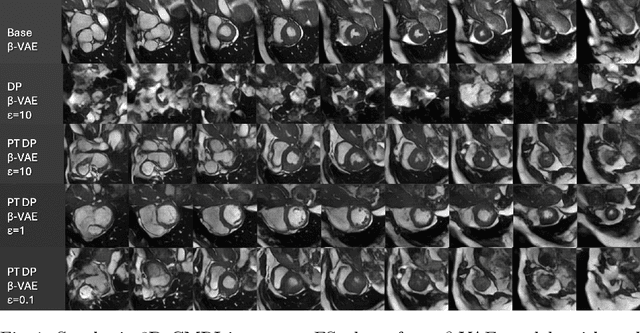
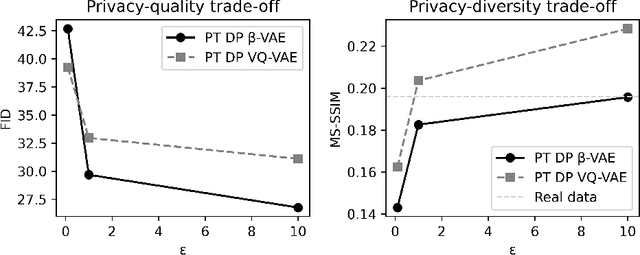

Abstract:Generally, the small size of public medical imaging datasets coupled with stringent privacy concerns, hampers the advancement of data-hungry deep learning models in medical imaging. This study addresses these challenges for 3D cardiac MRI images in the short-axis view. We propose Latent Diffusion Models that generate synthetic images conditioned on medical attributes, while ensuring patient privacy through differentially private model training. To our knowledge, this is the first work to apply and quantify differential privacy in 3D medical image generation. We pre-train our models on public data and finetune them with differential privacy on the UK Biobank dataset. Our experiments reveal that pre-training significantly improves model performance, achieving a Fr\'echet Inception Distance (FID) of 26.77 at $\epsilon=10$, compared to 92.52 for models without pre-training. Additionally, we explore the trade-off between privacy constraints and image quality, investigating how tighter privacy budgets affect output controllability and may lead to degraded performance. Our results demonstrate that proper consideration during training with differential privacy can substantially improve the quality of synthetic cardiac MRI images, but there are still notable challenges in achieving consistent medical realism.
Enhancing the Utility of Privacy-Preserving Cancer Classification using Synthetic Data
Jul 17, 2024Abstract:Deep learning holds immense promise for aiding radiologists in breast cancer detection. However, achieving optimal model performance is hampered by limitations in availability and sharing of data commonly associated to patient privacy concerns. Such concerns are further exacerbated, as traditional deep learning models can inadvertently leak sensitive training information. This work addresses these challenges exploring and quantifying the utility of privacy-preserving deep learning techniques, concretely, (i) differentially private stochastic gradient descent (DP-SGD) and (ii) fully synthetic training data generated by our proposed malignancy-conditioned generative adversarial network. We assess these methods via downstream malignancy classification of mammography masses using a transformer model. Our experimental results depict that synthetic data augmentation can improve privacy-utility tradeoffs in differentially private model training. Further, model pretraining on synthetic data achieves remarkable performance, which can be further increased with DP-SGD fine-tuning across all privacy guarantees. With this first in-depth exploration of privacy-preserving deep learning in breast imaging, we address current and emerging clinical privacy requirements and pave the way towards the adoption of private high-utility deep diagnostic models. Our reproducible codebase is publicly available at https://github.com/RichardObi/mammo_dp.
Bounding Reconstruction Attack Success of Adversaries Without Data Priors
Feb 20, 2024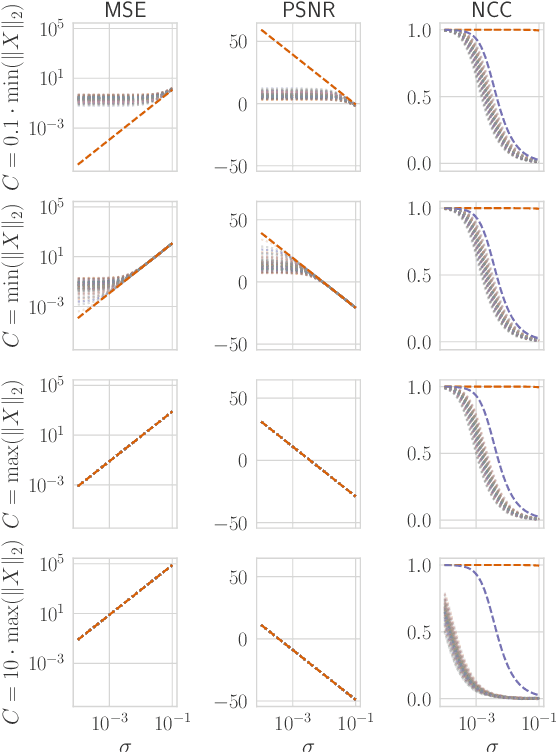
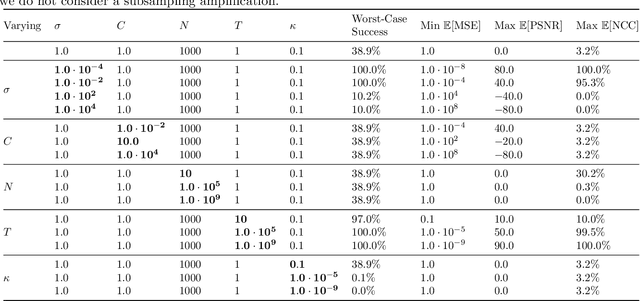

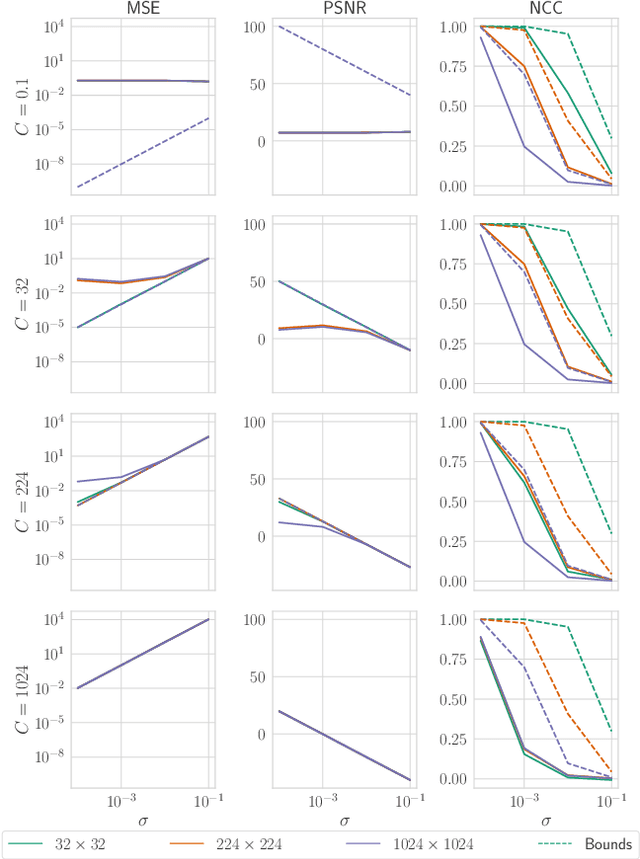
Abstract:Reconstruction attacks on machine learning (ML) models pose a strong risk of leakage of sensitive data. In specific contexts, an adversary can (almost) perfectly reconstruct training data samples from a trained model using the model's gradients. When training ML models with differential privacy (DP), formal upper bounds on the success of such reconstruction attacks can be provided. So far, these bounds have been formulated under worst-case assumptions that might not hold high realistic practicality. In this work, we provide formal upper bounds on reconstruction success under realistic adversarial settings against ML models trained with DP and support these bounds with empirical results. With this, we show that in realistic scenarios, (a) the expected reconstruction success can be bounded appropriately in different contexts and by different metrics, which (b) allows for a more educated choice of a privacy parameter.
 Add to Chrome
Add to Chrome Add to Firefox
Add to Firefox Add to Edge
Add to Edge